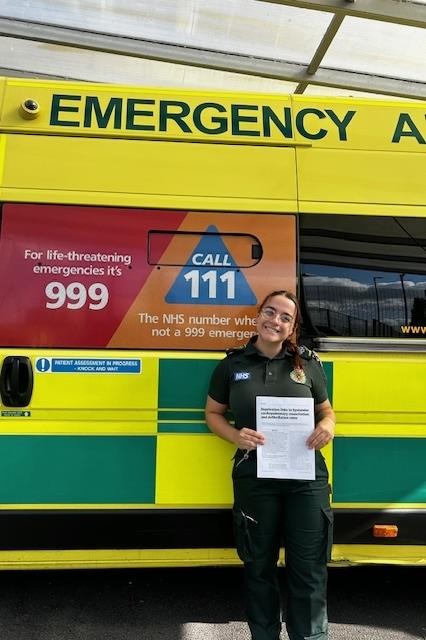Chloe Keeping, an EMAS paramedic based in Lincolnshire, has had her first piece of research published in the Journal of Paramedic Practice.
The article, “Deprivation links to bystander cardiopulmonary resuscitation and defibrillation rates”, found that there are higher levels of out-of-hospital cardiac arrest in areas with higher social and economic deprivation, but that these areas also have lower levels of bystander CPR given.
Additionally, it shows the access to automated external defibrillators (AED) in these deprived areas is the same as other areas, despite cardiac arrest rates being higher.

Chloe said, “This research is something that I am really passionate about. Health inequalities are becoming more openly spoken about and have been identified as a key factor of the new EMAS strategy.
“My research is essentially a summary of five studies within the UK highlighting the impact of deprivation on AED availability and the likelihood of receiving bystander CPR.
“This has been done in my spare time with the support of Dr Greg Whitley, Paramedic Research Fellow at EMAS and Senior Lecturer in Paramedic Science at the University of Lincoln.
“I am hoping it will lead to future opportunities to research this topic in Lincolnshire and the wider East Midlands.
“I am really proud to get my first publication, particularly as I am now one of the youngest published paramedic authors within the Journal.
“I hope this inspires other staff to consider any research topics they would be interested in writing about.”
Dr Greg Whitley said “I’m incredibly proud of Chloe for seeing through her academic work to publication.
“It represents the potential of our student and trainee workforce in contributing to and enhancing the evidence base from which we draw our clinical practice.”

